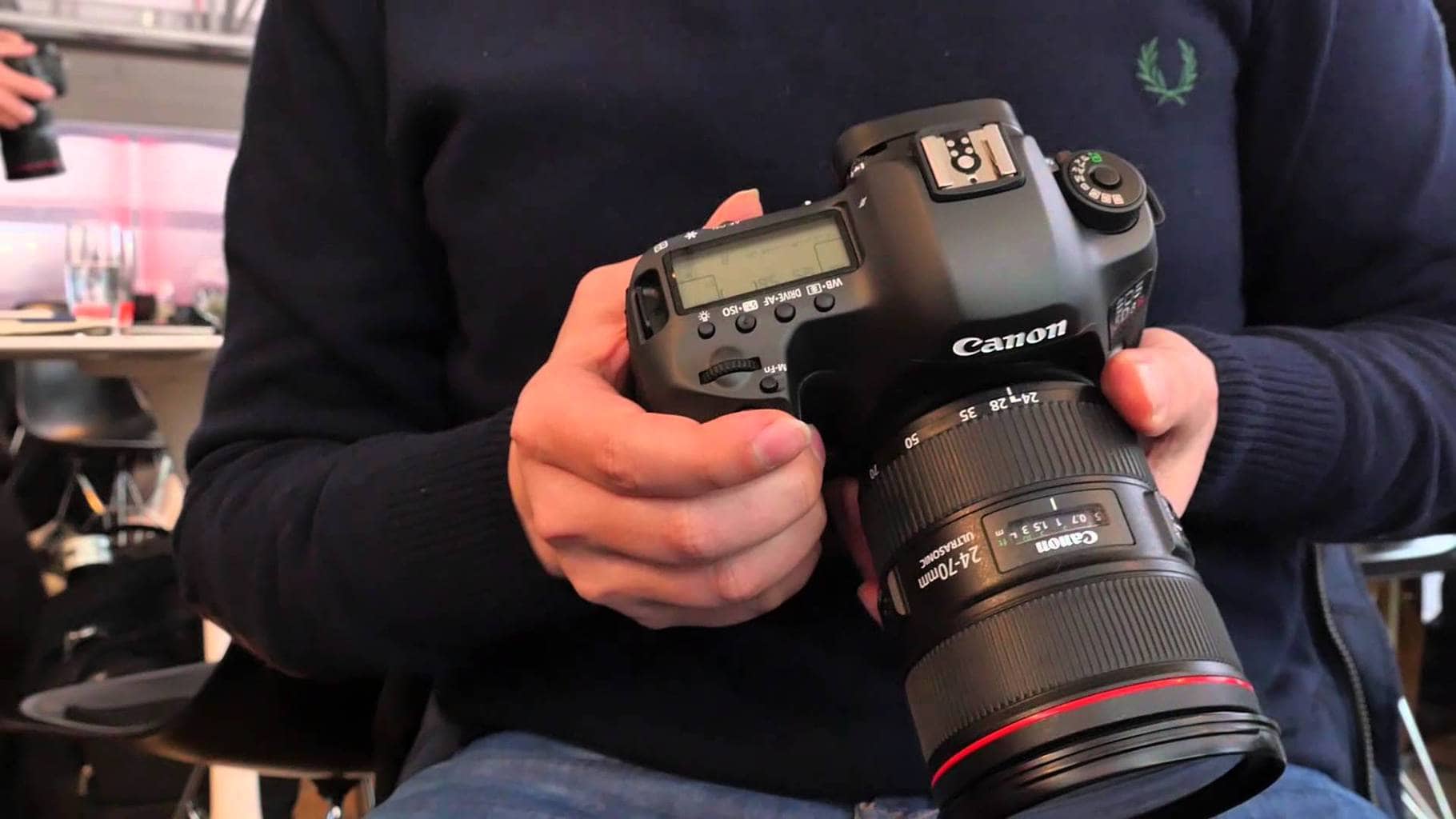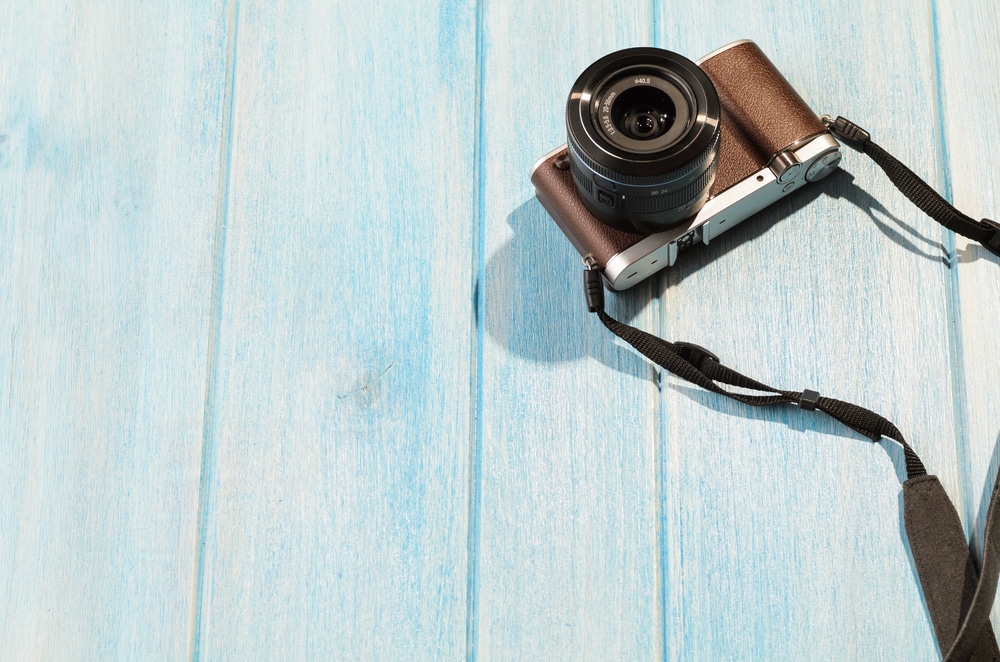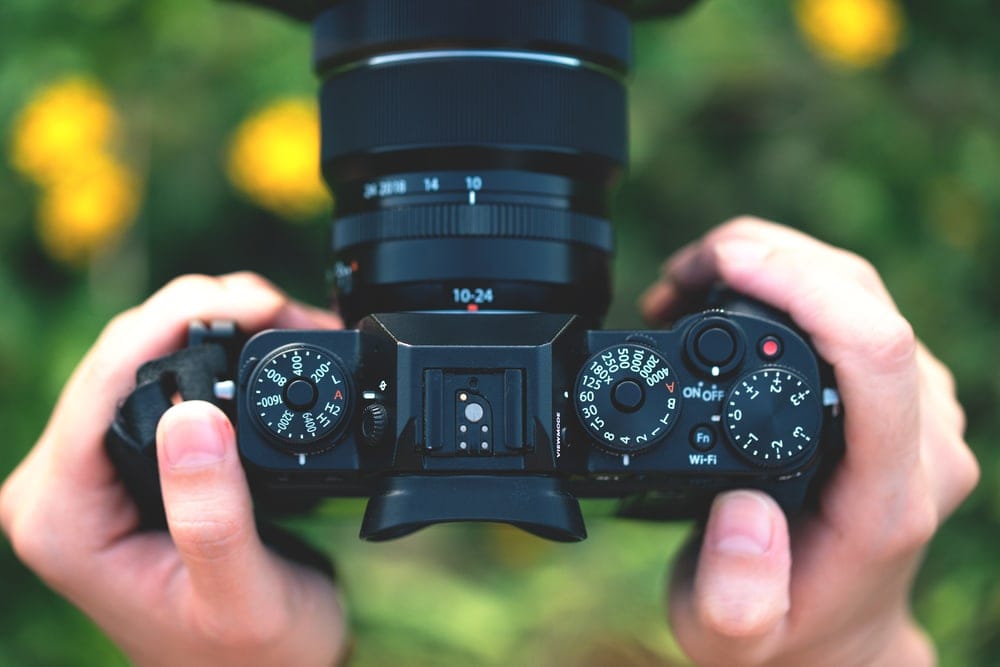Normally, I recommend cameras, not discourage them ? At first it sounds a bit disconcerting, I'll explain this in a moment. If you are an expert in photography you will see how you agree with me, but if, on the contrary, you are still starting in this field, all the more reason you have to read this article. One of the most common mistakes for the beginning photographer is buying the wrong camera.
Let's go to trouble
YOU THE PHOTOGRAPHER
Before showing you the 3 cameras that you should never buy, under any circumstances, I need us to agree first on a key point: you, the photographer.
To simplify the explanation, we will distinguish between 3 types of photographers:
- Professional photographer.
- Hobbyist photographer.
- “Trendy” photographer (now we explain it).
The professional photographer is someone who seeks to earn a living as a photographer, dedicate himself to photography professionally, have people hire him to cover their events, or buy him photographs previously taken by him. He is someone who is willing to invest money in professional photography equipment since he has a plan in mind to make that purchase profitable and recover that investment in the medium term in the form of income from his profession.
The amateur photographer is someone who, without intending to dedicate himself to photography professionally, and without his main objective being to earn money taking photos, likes photography, he is passionate about it, it drives him crazy. He enjoys spending hours and hours taking photos, looking at others' photos and trying to progress and improve his technique as a photographer, always from a passionate amateur angle.
The photographer I call "trendy" is also not a professional photographer. Perhaps he would fall into the category of amateur photographer, but unlike him, the "trendy" follows a bit of fashion as far as "trendy" and "cool" machines and cameras are concerned. Here we are talking about a type of person who can enjoy taking photos more or less, but deep down, deep inside, what he is really passionate about is the material part of the cameras: their body, their texture, their design, their marquita maybe. This is someone who finds pleasure in acquiring and using the device itself. Someone who feels an obligation to be up to date when it comes to cameras. You have to have the latest in cameras, whether you use it or not.
To make an analogy between the one and the other, the amateur photographer after taking the photo rejoins, raises the camera and while looking at it thinks " what a beautiful photo I have taken!" . The trendy photographer, on the other hand, after taking the photo, gets back up, picks up the camera and while looking at it thinks «My God! Mother of beautiful Love! What a cool camera I have!” .
It is clear that among these 3 main types of photographers there are gray and gradual areas, there are photographers who define themselves as somewhere between the serious amateur and the professional, there are others who, although they are passionate about taking photos (and therefore are amateurs), also they love the cameras themselves (and therefore would also fall into the third category), but for simplicity let's stay with these 3 types of photographers. I think this classification will help me explain what comes next: the 3 cameras you should never buy .
Having clarified this concept of “types of photographers”, what 3 cameras do you think I am going to advise against?
3 CAMERAS THAT I STRONGLY ADVISE AGAINST
1) Avoid the professional camera: Many times we confuse the term « professional » with « photographic quality ». There are people who say " oh, this photo is very professional , it shows ", meaning " oh, this photo is of very good quality , it shows ".
Professional is not synonymous with quality. It is true that we expect quality photos from a professional photographer, but there will be professional photographers who take good photos and there will be those who take bad ones. In this life I have seen everything ? Similarly, there are breathtaking photos taken by amateurs. Therefore, "professional" and "quality" are two terms that may coincide but do not necessarily mean the same thing.
Applied to the subject at hand, an amateur photographer does not necessarily need a "professional" camera to produce high-quality photographs. Good photographs are taken by good photographers. The camera, professional or not, has nothing to do with it. Professional cameras provide professional features and respond to the use needs of a "professional", which are often very different from those of an amateur.
Apart from this, another reason why I advise against professional cameras for amateur photographers is because of the enormous weight that they physically entail, the disproportionate dimensions, and the technical complexity that they entail. The last thing a hobbyist or beginner photographer looking to learn needs is a camera with a scary menu and loads of items.

Want more reasons why you should avoid professional cameras as a hobbyist photographer? Its price is prohibitive. If you rush me, it's a bad idea even if you're rich and have money to spare. Because? I think it is a better idea to invest in a "non-professional" SLR camera, made and designed for the amateur photographer, it will cost you much less, and the money you will have left over will allow you to get excellent lenses and accessories that will help you get results much better photos. Many times we make the mistake of thinking that a 2,000-euro camera will give better results than a 500-euro one. The reality is that a 500 or 600 euro camera paired with a good lens (like the King of Lensesfor example) you can think a thousand times about the result you can get with the 2,000-euro camera.
2) Avoid the trendy, fashion, cool camera, designed mainly to be adored and loved as if it were a jewel:Be careful, I'm not saying it's not a good product. Perhaps it is for other purposes, such as decoration, or collecting, but in my humble opinion, the best camera to take good photos is not usually the most physically beautiful and sexy. I think that brands have been realizing over time that there is a niche market that they could satisfy and make money, a lot of money. Instead of competing with other brands in performance, ease of use, photographic and optical quality, or even in price, some brands have seen a vein in producing and marketing cameras that in terms of performance and photographic quality are rather normal, but instead provide the buyer with an "aesthetic satisfaction" that makes them worth a lot of money.

Unless you are that "trendy photographer" that we talked about at the beginning, friend or friend, I do not recommend buying these cameras that have a "vintage" or retro aesthetic, with parts perhaps covered in genuine leather or similar synthetic materials, which they instill a certain sensation of luxury and delicacy of materials. If you need the camera to display and love it well, it might be a good idea to consider these cameras, but if instead of enjoying the camera itself, the object, what you are really passionate about is the final result, the photography, forget them. Is there anything better.
3) Avoid the latest generation camera: And you will ask yourself, Mario, what kind of mushrooms have you tried this time? What's wrong with the latest generation cameras now? Obviously there is no problem. None. What happens is that there are better options, much better.
Wait… is there anything better than a state-of-the-art camera?
Yes of course. The older generation ?
As you already know, and if you don't know, I'll tell you, brands design a certain model of camera, launch it on the market, and from then on every so often they "relaunch" almost the same model but with certain improvements here and there. With few exceptions, most of the time these improvements are small and touch areas that generally do not influence the quality of the photo. Maybe they add a GPS receiver so that the camera records the location where it was taken on the photo itself. Or maybe they add a new resolution to record video so that the camera starts recording in 4 different resolutions instead of 3 for example. Sometimes they make the camera a few more megapixels, like 24 megapixels instead of 20.
I know what you're thinking: Just because these improvements are minimal doesn't mean we have to avoid those cameras. Even if they are not going to improve our photographic quality, what does it matter? It is understood that the camera does not roll back. Improvement. Little, but it improves.
So what's the problem with acquiring that latest model?
The problem is mainly its price. For the simple fact of being an improved model, just released on the market, traditionally the latest generation always costs a lot, a lot of money, much more than the previous generation that it "improves".
Personally I could understand this if the difference in benefits justified it. The problem is that when that difference is minimal, as we have been saying, is it reasonable to pay 300 and sometimes 600 euros difference just to be able to boast of having the latest generation of cameras?
If you are an amateur photographer and your interest is to find a good SLR camera, from a solid brand in the market, with a good balance between current features, affordable price, maximum compatibility with lenses and accessories, and ease, great ease of use for the beginner photographer, my article with the best SLR cameras for beginners is one of the most viewed and commented here on the blog. I recommend that you take a look at it. I would put my hand in fire for any of the cameras I recommend in that article.
[button color=”yellow” size=”big” alignment=”center” rel=”follow” openin=”samewindow” url=”https://www.blogdelfotografo.com/mejores-cameras-digitales-principiantes/ »]See selection of the Best SLR Cameras[/button]
I hope that the article has helped you to distinguish the type of camera that you really need as an amateur photographer. Not all cameras are worth. And remember, it's not all that glitters.
That is all for today. If you enjoyed this read, express it with the Facebook, Twitter or Google+ buttons ? – Thanks in advance.


